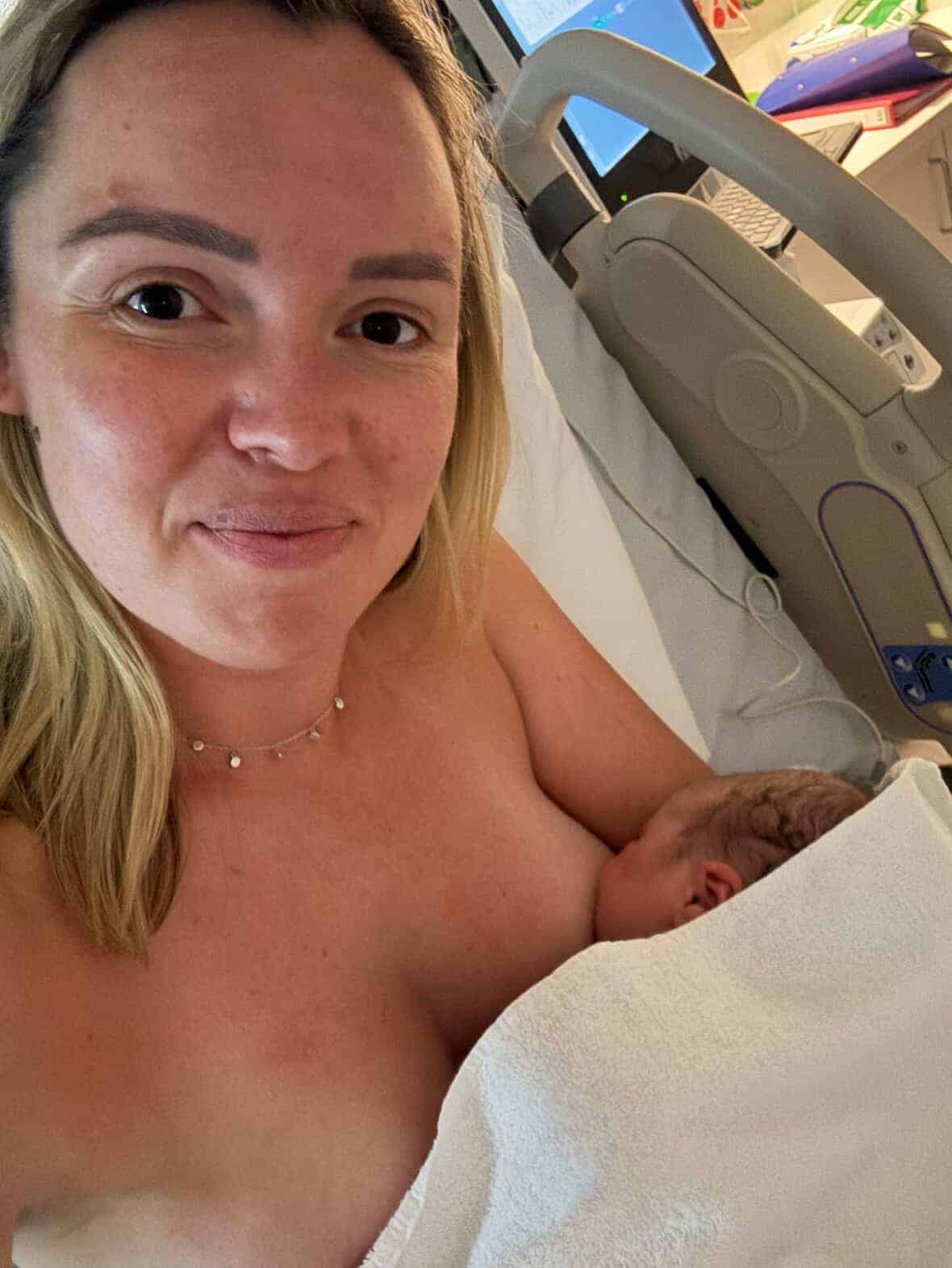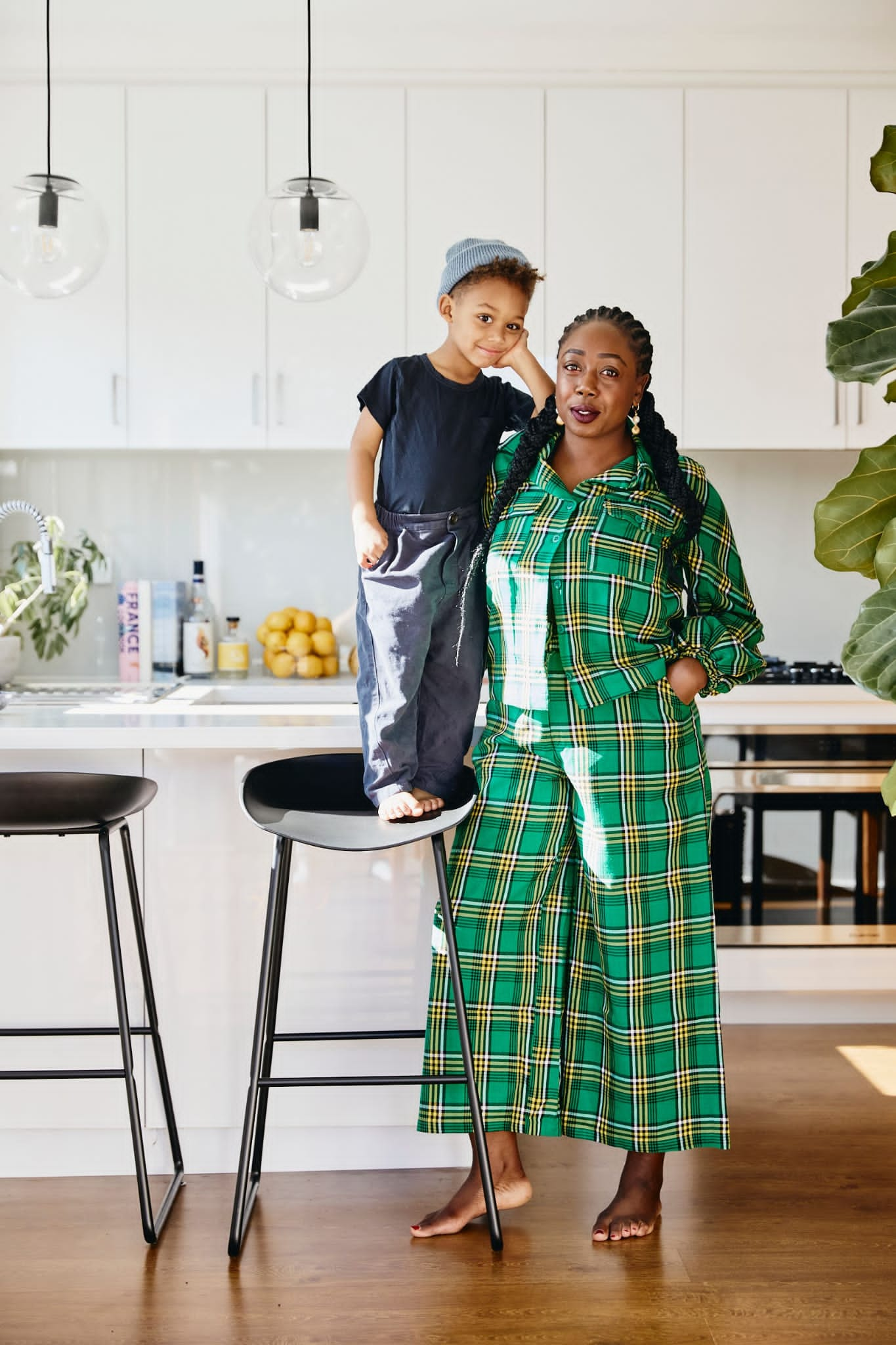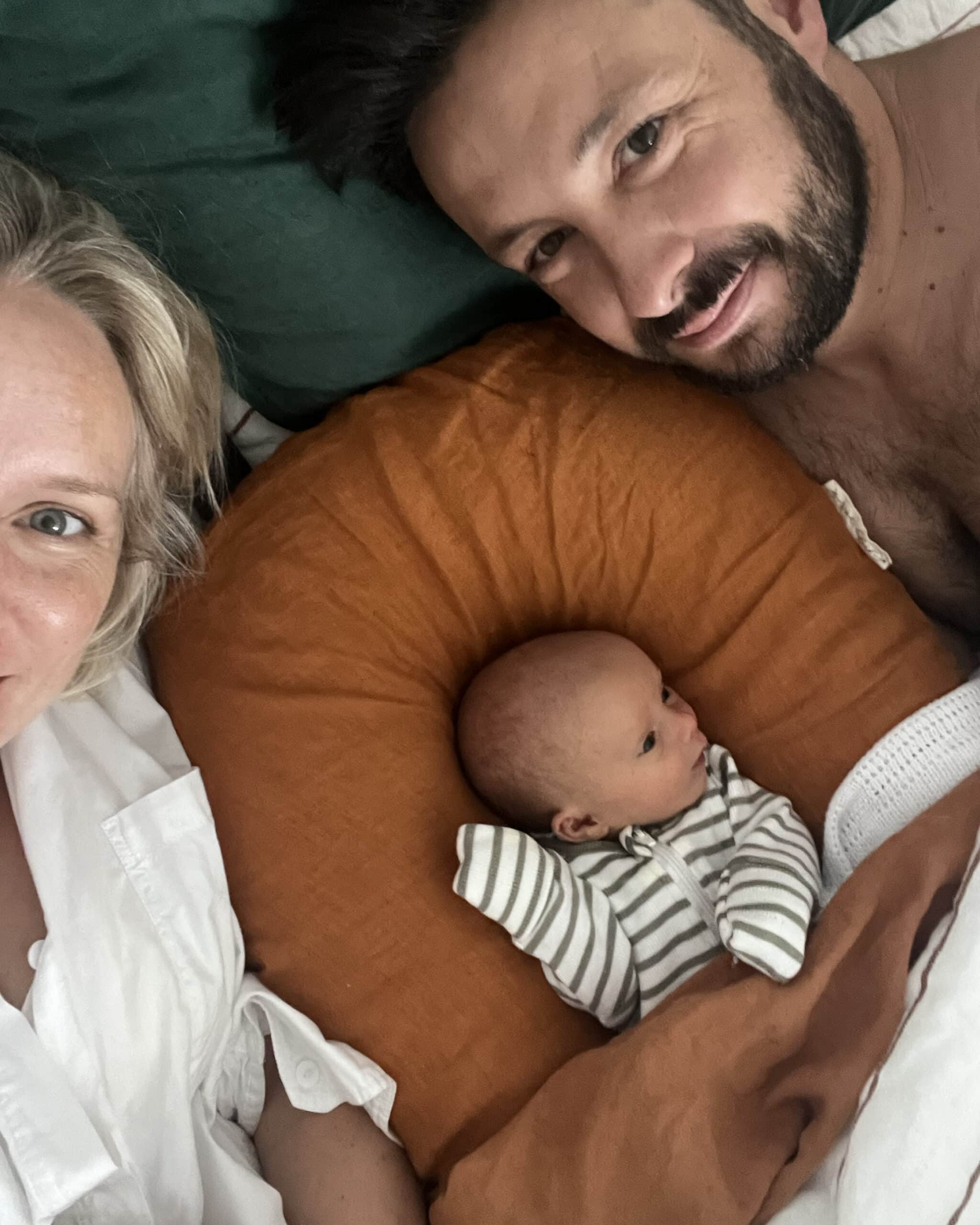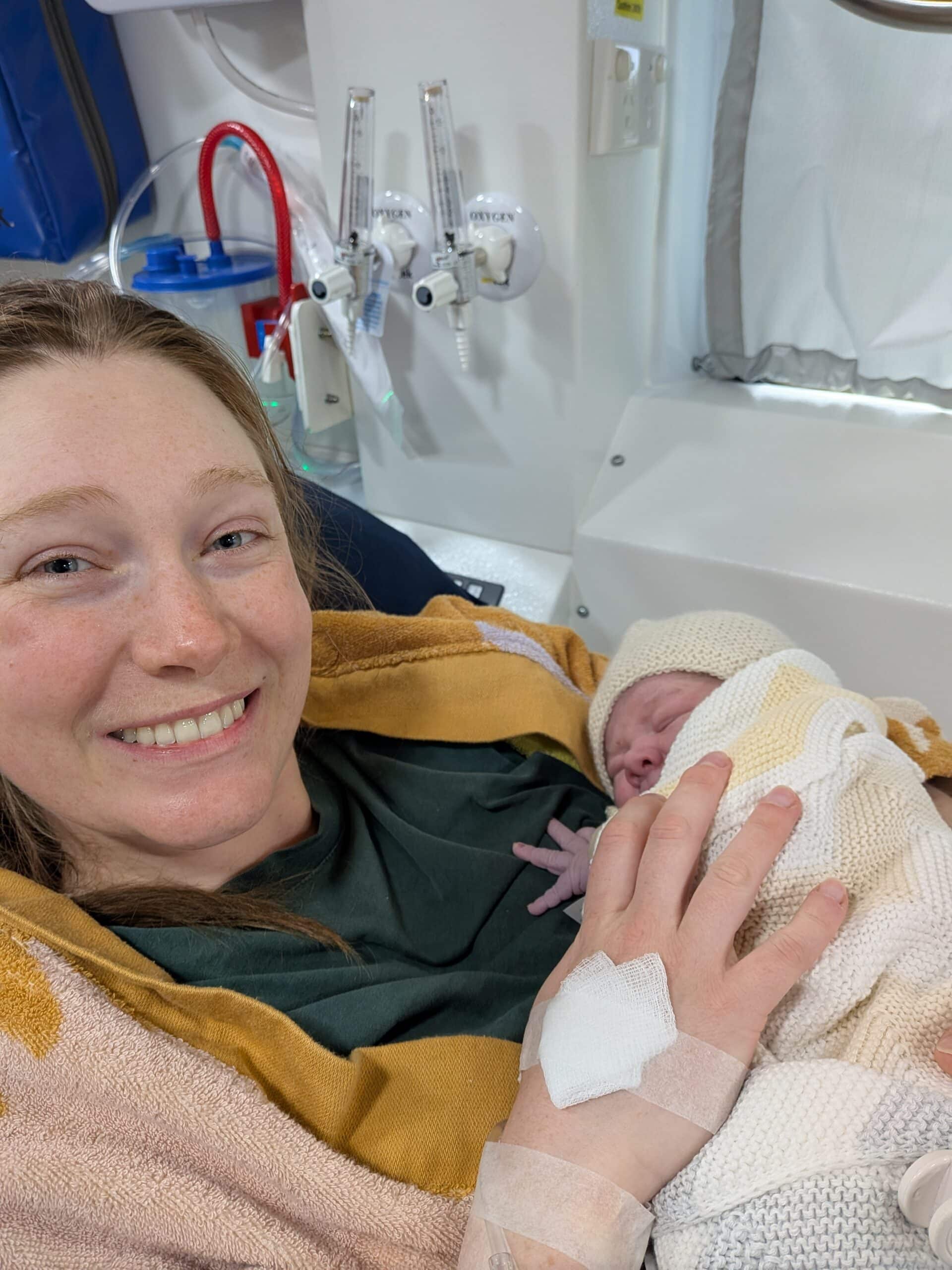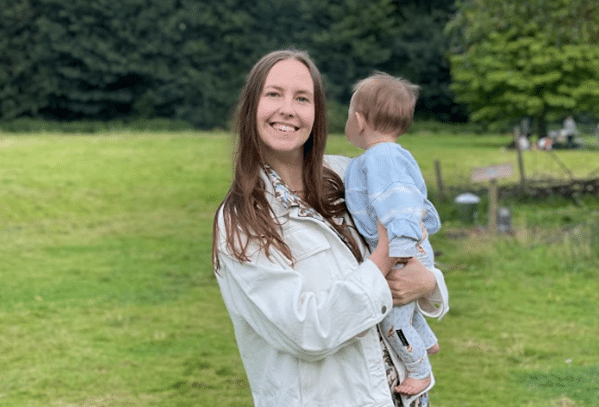Podcasts Maggie
EPISODE 271
Maggie
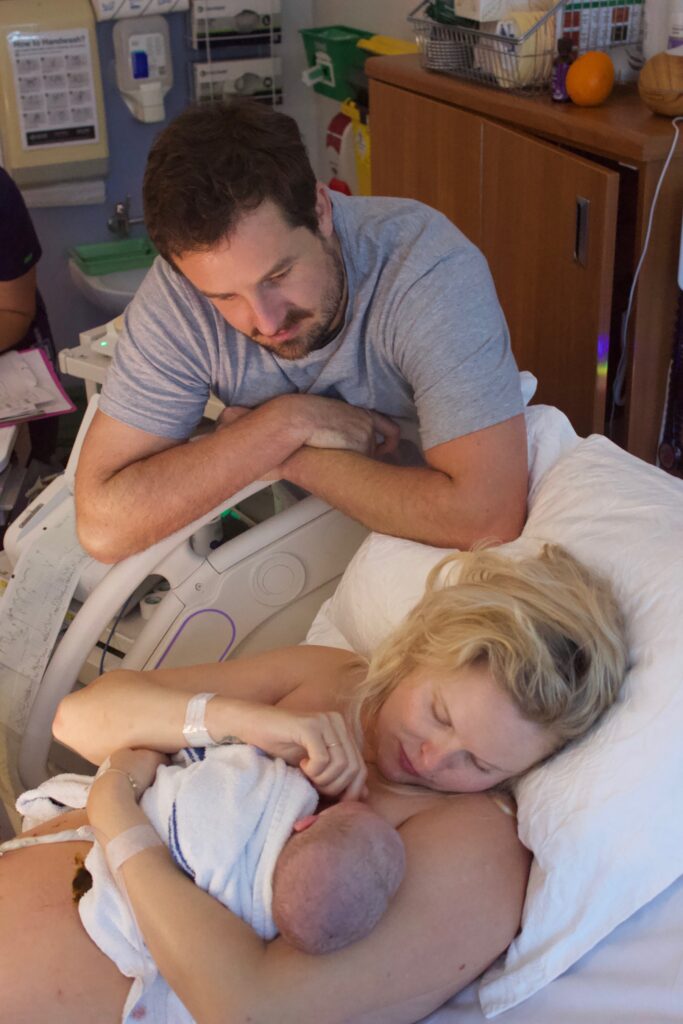
After moving to Brisbane from Amsterdam at the start of the pandemic, Maggie and her partner Julian decided to start their family. Not once did they think they would conceive on the first go, hence Maggie was pleasantly shocked when she discovered she was seven weeks pregnant after complaining of exhaustion and bloating.
“My cycles were a bit all over the shop and I was seven weeks pregnant when I found out. We called out parents and had a glass of champagne which in hindsight probably wasn’t a great idea. It wasn’t long till I started feeling very sick; I vomited multiple times a day till twenty weeks and spent the so many hot and humid days in bed with ice packs.
“My aunt is a midwife so we got her on the phone straight away and she recommended we jump in and get on the list at Brisbane Royal Womens. It wasn’t very straightforward, there were a lot of questions about options we weren’t familiar with but eventually we decided that the birth centre was the way to go. We were part of a small team of three midwives; I saw a different one at each appointment and one of them was guaranteed to be caring for me at my birth.
“We felt a bit anonymous in the system and we felt like we needed some hand holding considering we were first time parents but we didn’t get that. The midwives at the hospital were always so tired, they hadn’t slept, they forgot who we were and it was a weird realisation that I needed more support. I went to see the documentary Birth Time with my doula when I was 30 weeks and I walked out of the cinema and said to my doula: let’s have a home birth. It was big for me, I come from a medical family and my father is a doctor but I knew in my heart that it’s what I wanted to do.
Maggie talks at length about the mental hurdle of turning away from the hospital system to embrace a home birth but as she points out, independent midwives offered her more support both during labour and pre and post birth.
“Independent midwives can transfer with you from home to the hospital – they were going to be with us whatever happened and that was the big thing that signed the deal for us. Homebirth is really taboo and it was important for us to explore the difference between assisted home birth and freebirthing. As soon as Julian understood that it was important for me to labour in a place where I was comfortable and had support then he was all for it.”
“Once I had my team lined up I really felt like I had some sense of control and that I would have the birth I wanted. I had listened to so many stories about women who had walked away so sad from their first birth and it really became my priority to not fall into that category, to do all the preparation I could to ensure that I had a birth that was joyful and natural; everything that second births seemed to be.”
Maggie was 41+3 when she lost her mucous plug and promptly sent a photo to her midwife. There were no contractions but at this point she had noticed that baby Minty had slowed down her movements so she called her midwife who responded quite urgently.
“I was very anxious at this point so we went to the clinic and the heartbeat was strong but then her movements were very slow; I couldn’t recall feeling her since the night before and that’s the ultimate red flag. Our midwife guided us through what we should do and she recommended we go to hospital. At that point I knew the homebirth wouldn’t be happening and I would be entering the space of a medical emergency which was very distressing. We went home and packed four suitcases of fairy lights and candles and essential oils. I had a big cry and mourned the fact that I wouldn’t have a home birth and it was important for me to have that closure before we went to hospital.
“The hospital didn’t have any beds and was set to be full for the next few days and the obstetrician said they couldn’t give me an ultrasound and I should go home and return on Tuesday which just didn’t sound right to us. Michelle our midwife was our advocate and she knew she could care for me at Redcliff birth centre which is about 40 minutes away and they had beds and were waiting for us. We arrived within the hour. Minty had started moving again, very slowly, but we were in the hospital and we were happy to be there and be monitored.”
An induction was recommended but prostaglandin gel failed to work on the first night. The following night it was applied in the evening and within an hour she was experiencing regular, strong contractions. Baby Minty was posterior so Maggie could lie down or sit to rest; hip squeezes and massages from her doula helped maintain her positive head space despite the pain.
“There was a lot of logistical stuff that I felt distracted by, especially regarding when to call my private midwife who was an hour away. I was very torn by making sure everything was ok. We had asked the hospital midwives to be as hands off as possible and they were great, they just did the most rudimentary checks. By 11pm I was non-verbal and shrieking in pain and that’s when we called Karen. Part of my birth intention was that I didn’t want too many numerical markers – cervical dilation and time in labour – as I thought they’d be distracting and I’d get quite obsessed with them.
“Towards the end I struggled, I was screaming for help and I felt like I was on fire and that’s when I opted for an epidural. Physically it was exactly what I needed and I passed out immediately. Emotionally I was gutted, I was devastated. I felt weak, I felt like I had failed. I woke up from the epidural and I was crying, I felt like I’d found myself at the finish line but that I’d cheated. I knew I had to do something to shift the energy in the room. I woke everyone up, opened the windows and let the sun shine in, I put my playlist on – the Spice Girls, the Backstreet Boys – and then I started to push. I’m proud of the fact that we could rally and change the energy in the room. I was completely numb from the waist down which felt really yuk, I felt like my legs were lumps of meat. Karen was an incredible guide and she helped move me onto all fours because we needed Minty to move into a different position and that’s what moved her around and got her moving down. I was so determined that I wanted to be strong; I was struggling with being numb, I wanted control right up until the last minute.”
Maggie admits that there was a lot of darkness after Minty was born: “I thought I would recognize her but I didn’t. I didn’t feel any connection with her and it’s really hard to say that at this point now that I love her so much. Now I see that postpartum depression can start at bir
th; I felt really blue and very strange and very disconnected.”
She had thorough postnatal care from her homebirth midwives and they recommended she see someone about her feelings of failure and regret that weren’t shifting but she admits that she had an aversion to seeking help.
“Anxiety and depression isn’t new to me, I’ve had lots of treatment over the years and I was very aware that I was a likely candidate for postpartum depression.”
Topics Discussed
Breech, Epidural, Home birth, Induction, Postpartum depression (PPD), Spinning babies, Vaginal birth
Categories
Related Products
-
Birth Meditations
$49.00Narrated by Sophie Walker, these soothing and informative meditations help you feel supported and confident around birth.
Join the conversation
Sign up to get the latest updates, freebies, podcast releases straight into your inbox
@AustralianBirthStories
Follow along with us
@AustralianBirthStories
Follow along with us
@AustralianBirthStories
Follow along with us
@AustralianBirthStories
Follow along with us
@AustralianBirthStories
Follow along with us
@AustralianBirthStories
Follow along with us
@AustralianBirthStories
Follow along with us
@AustralianBirthStories
Follow along with us
@AustralianBirthStories
Follow along with us
@AustralianBirthStories
Follow along with us
@AustralianBirthStories
Follow along with us
@AustralianBirthStories
Follow along with us

